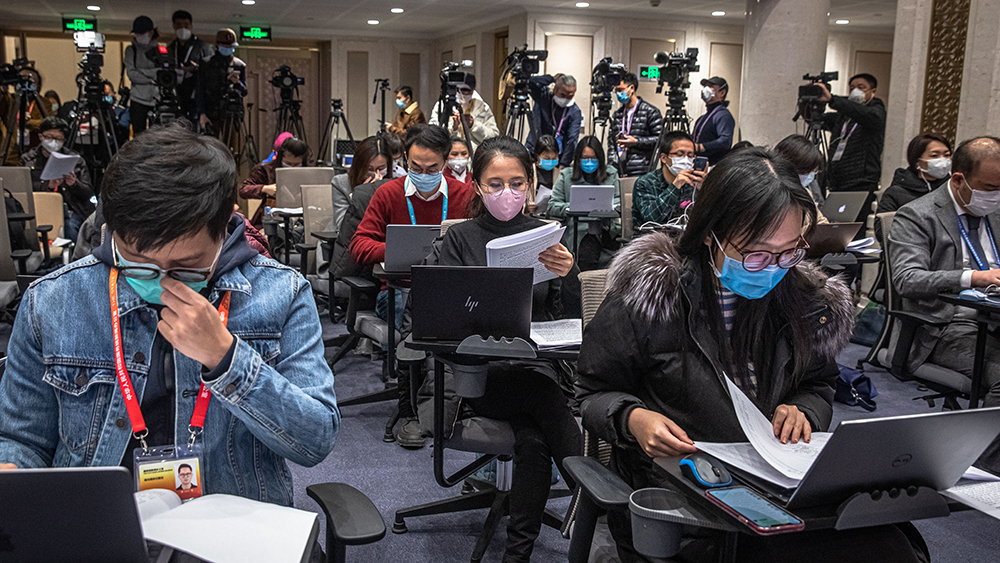China Expels Journalists From Three Major U.S. Newspapers
By Rebecca Davis
LOS ANGELES (Variety.com) – China said Tuesday it will expel all American journalists working in the country for the New York Times, Washington Post and Wall Street Journal whose credentials will expire in 2020.
The journalists will have to turn in their press credentials within 10 days, ’s Ministry of Foreign Affairs said in a statement.
“They will not be allowed to continue working as journalists in the People’s Republic of China, including its Hong Kong and Macao Special Administrative Regions,” the statement read.
Previously, numerous reporters blacklisted from working in the mainland had been able to continue their coverage from afar in Hong Kong or Macau. The inclusion of the two regions in the ban signals a further erosion of press freedoms there.
The Chinese foreign ministry has also demanded that five U.S. news outlets — the , the , the , and — turn in detailed written reports about their staff, finances, operations and real estate in China.
The move comes as Washington and Beijing are locked in an escalating tit-for-tat battle over press access to their respective countries, at a time when the world is under threat from a pandemic.
Washington Post executive editor Marty Baron said in a statement that China’s move was “particularly regrettable because it comes in the midst of an unprecedented global crisis, when clear and reliable information about the international response to Covid-19 is essential.”
“Severely limiting the flow of that information, which China now seeks to do, only aggravates the situation,” he added.
Tensions between the two countries began to mount last month. On Feb. 18, the Trump administration classified employees of five state-run Chinese news organizations as government operatives who should be treated as employees of “foreign missions,” not journalists. These known propaganda outlets — Xinhua, CGTN, China Radio, China Daily and the People’s Daily — take orders directly from Chinese leadership on what and what not to publish, and are tasked with issuing only news favorable to the country’s Communist regime.
Of the five U.S. outlets now targeted by China, only Voice of America is not privately run.
On Feb. 19, the very next day, China said it would expel three Beijing-based Wall Street Journal reporters in retaliation for the headline of an op-ed criticizing the Chinese response to , titled “China Is the Real Sick Man of Asia.”
These expulsions are thought to mark the first time foreign journalists have been explicitly kicked out of the country by the Chinese authorities since 1998, although the tactic of refusing to renew journalist visas has been a growing means of effectively pushing reporters out. The Foreign Correspondents Club of China counts nine foreign nationals who have effectively been thrown out of the country since 2013, either directly or via such quieter means.
On March 2, the U.S. State Department said it would reduce the number of Chinese citizens allowed to work in the U.S. for the five state-run Chinese media outlets from 160 to 100, meaning that 60 would have to leave the country.
A spokesman for China’s Ministry of Foreign Affairs said Tuesday that China’s new directives are “entirely necessary and reciprocal countermeasures that China is compelled to take in response to the unreasonable oppression the Chinese media organizations experience in the U.S.”
But at a State Department briefing Tuesday, U.S. Secretary of State Mike Pompeo slammed China’s claim to reciprocity. “This isn’t apples to apples,” he said, according to the New York Times. “You all get to ask me whatever question you want and I give you the answer. We know that that kind of freedom doesn’t exist inside of China.”
Last August, China refused to renew the visa of Singaporean Wall Street Journal reporter Chun Han Wong, effectively expelling him. He and another of his colleagues already expelled last month had written an investigative report that examined the financial dealings of Chinese President Xi Jinping’s cousin.
Foreign reporters in China are able to put out sensitive stories that might otherwise never come to light due to the country’s strict censorship of its own domestic outlets.
“It would be impossible not to interpret Beijing’s latest move as an effort to control the uncontrollable story, namely the spread of COVID-19,” said Suzanne Nossel, CEO of free speech nonprofit PEN America.
“At a time when facts and information are a matter of life and death for billions of people worldwide, the cycle of tit-for-tat retaliation between Beijing and Washington over the role of journalists is stunningly misguided and a grave risk to public safety.”

